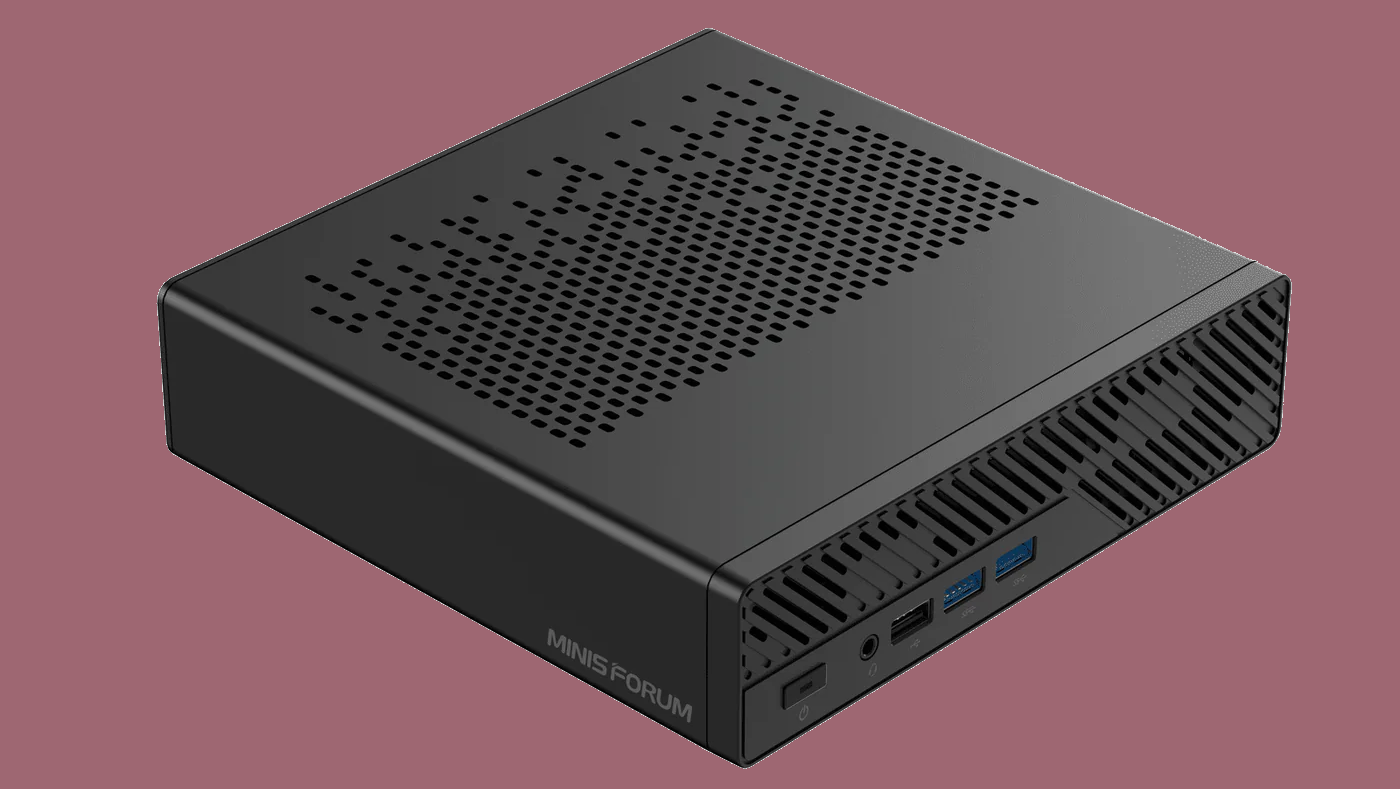
Amidst the chaos of October, Minisforum launched the MS-A1 AM5 mini-PC with both barebones and a Ryzen 7 8700G configuration— but earlier this morning, Minisforum also added a new variant with Ryzen 9 9950X.
Compared to other mini PCs, which usually don’t come in alternative barebones forms, MS-A1 may be the most price-accessible, customizable mini-PC on the market, especially keeping that AM5 socket and OCuLink eGPU support in mind. Every configuration of the device comes in the same 189.5 x 186 x 48 mm form factor (longest side 7.4 inches).
Now, before making any recommendations, it’s worth noting that with current market conditions in mind, you’re mostly just paying for convenience if you opt for the Ryzen 9 9950X or Ryzen 7 8700G models since you can acquire separate CPU, memory, and RAM for less money if you opt for the barebones kit instead.
Bringing your Ryzen 9 9950X and matching RAM/storage for capacity could save you over $100, though you must be mindful of form factor restrictions. Fortunately, the mini-PC enclosure has its cooler built-in, so you don’t need to worry about adding fans or buying an additional heatsink if you bring your CPU, though you may want to have a thermal paste kit on hand just in case.
| Row 0 – Cell 0 | Minisforum MS-A1 Barebones AM5 Kit | Minisforum MS-A1 Ryzen 7 8700G Model | Minisforum MS-A1 Ryzen 9 9950X Model |
| CPU Architecture | Supports AM5 CPU architectures from Ryzen 8000 and 9000 Series | Zen 4 | Zen 5 |
| CPU Cores, Threads, and Speed | N/A | 8 cores, 16 threads up to 5.1 GHz | 16 cores, 32 threads up to 5.7 GHz |
| iGPU | Depends on CPU | Radeon 780M Graphics with 12 RDNA 3 Compute Units | Radeon Graphics with 2 RDNA 2 Compute Units |
| RAM | Supports up to 96 GB Dual-Channel SODIMM DDR5 RAM @ 5200 MT/s | 32 GB DDR5 SODIMM RAM @ 5200 MT/s | 64 GB DDR5 SODIMM RAM @ 5200 MT/s |
| Storage* | 4 NVMe slots each supporting up to 4 TB— 2 rear NVMe Gen 4 slots, 1 front NVMe Gen 3 slot, 1 front NVMe Gen 4 slot | 1 TB NVMe Gen 4 SSD | 2 TB NVMe Gen 4 SSD |
| Front I/O | 1 3.5mm audio jack, 1 Type-A USB 2.0 port, 2 Type-A USB 3.2 ports | 1 3.5mm audio jack, 1 Type-A USB 2.0 port, 2 Type-A USB 3.2 ports | 1 3.5mm audio jack, 1 Type-A USB 2.0 port, 2 Type-A USB 3.2 ports |
| Rear I/O | Dual 2.5 Gigabit Ethernet ports, 1 DisplayPort 2.0 port, 1 HDMI 2.1 port, 1 Type-C USB4 port, 1 Type-A USB 3.2 port, 1 Type-A USB 2.0 port, 1 OCuLink port | Dual 2.5 Gigabit Ethernet ports, 1 DisplayPort 2.0 port, 1 HDMI 2.1 port, 1 Type-C USB4 port, 1 Type-A USB 3.2 port, 1 Type-A USB 2.0 port, 1 OCuLink port | Dual 2.5 Gigabit Ethernet ports, 1 DisplayPort 2.0 port, 1 HDMI 2.1 port, 1 Type-C USB4 port, 1 Type-A USB 3.2 port, 1 Type-A USB 2.0 port, 1 OCuLink port |
| MSRP | $259.00 | $729.00 | $1199 (or $919 barebones with CPU) |
*Note: The front M.2 slots seem to be smaller M.2-2230 rather than standard M.2-2280 slots. One may also be taken by opting for M.2 Wi-Fi/BT expansion, which is also supported.
The Minisforum MS-A1 is quite compelling as a barebones AM5 Mini PC kit. Its fully featured I/O, including USB 4 and OCuLink, should enable all the expansion end users need, significantly leveraging high-end desktop GPUs rather than compromised mobile GPUs. Those who want to maintain away-from-dock graphics performance can opt for a build or model with an APU like the Ryzen 8700G. In contrast, those who wish to prioritize multi-core performance could opt for a Ryzen 9 9950X config or go full custom with a gaming powerhouse like the Ryzen 7 7800X3D.
Of course, those hoping to make the most of a mini-PC like this must pair it with an appropriate OCuLink eGPU docking station. To cut down on extraneous PSU cable routing, I recommend the Aoostar AG02 or AG01 docking stations, which include integrated PSUs capable of handling the best graphics cards within wattage limits.
On the note of wattage limits, this mini-PC is noted as only supporting 100W-120W in its documentation despite being able to use a Ryzen 9 9950X rated for a much higher TDP— we firmly recommend that anybody using higher-end CPUs with this mini-PC enable Eco Mode in the BIOS as quickly as possible, which should prevent power usage issues and not majorly impact performance, especially for a chip like Ryzen 7 7800X3D.






